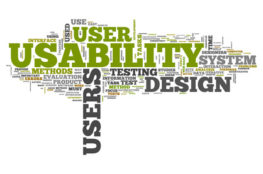People seem to expect Internet content and services to be free. We happily use the Internet to pay for tangible goods, such as a DVD or flowers, but if the thing we want is a service or information, we’re unwilling to pay. So we walk to the store to buy the newspaper, but if we have to pay for the same news online, we pass.
This has led to a rise in the “hook ’em in” strategy of selling: get people started for free, then upsell them after they’ve invested time. (See this recent Wired article for more on this.)
I’m not sure the free-but-not-free model is a good one.
On the one hand, you can test a service to see if it fits your needs before purchasing. That’s a good thing. However, lately, I’ve been seeing Web promos that make no reference to the upsell — it’s just free… until you try to save your work.
Here’s an example: Recently, I was testing BlinkWeb, a new CMS that has a decent interface — better than many CMS engines out there. The site is clearly not ad-supported, which begs the question: where does their revenue came from? On their Home Page, the biggest text other than their logo is “FREE” — and there’s no reference to paying anything on the About Us or Demo pages. Finally, I see something buried in the Media Room FAQs. Yep, it turns out only the use of the editor is free, but you must either pay for hosting or to pay to save your site for use on another host. (Side question: Is it a good deal? Maybe, especially for people that know nothing about HTML. The hosting price is high, but the editor interface might be worth the expense for some people.)
GoDaddy is notorious for upselling, but at least their pitch is so obnoxious that you can’t miss it. This one is subtle (until you’re hooked).
I’m all for free trial periods or demos, but in cases like these, I feel cheated. I think that’s bad business.



